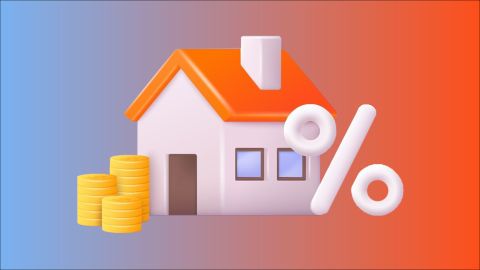Understanding the costs associated with house construction is crucial for anyone planning to build their dream home. The process involves various expenses from the initial design to the final touches, making financial planning a key aspect. It is important to comprehend the different factors that can influence the overall cost to effectively manage your construction budget.
Considering the significant financial commitment required when constructing a house, saving beforehand through investment options like mutual funds or fixed deposits can be beneficial. These saving methods not only help accumulate the necessary funds but also ensure that you are better prepared for any unforeseen expenses during the construction phase.
Factors influencing house construction cost
- Cost of land: The price of land is a significant determinant of overall construction costs. In prime urban areas, land prices are substantially higher compared to rural areas. This factor alone can dictate the budget, scale, and feasibility of a construction project.
- Construction materials: The selection of materials affects both the cost and durability of the construction. High-quality materials like high-grade steel and branded cement, though more expensive, provide better longevity and less maintenance cost in the long run. Seasonal fluctuations and availability can also impact prices.
- Labour costs: Labor costs vary widely depending on the region's economic conditions, the complexity of the construction, and the expertise required. Skilled labour like electricians, plumbers, and masons typically command higher wages than general labour.
- Architectural design and house size: The complexity of the design and the total built-up area directly impact the cost. Custom designs with intricate details and larger homes require more materials and specialised labour, increasing the overall expenses.
- Legal and administrative fees: These include costs for obtaining necessary permits, approvals, and inspections required by local authorities. Depending on the area, these might also include fees for environmental impact assessments and development charges.
- Environmental and zoning assessments: Depending on local laws, environmental clearances and zoning restrictions can affect what you can build and where, potentially leading to additional compliance costs or limitations on your planned construction.
Budgeting tips for house construction
- Obtain multiple contractor quotes: Gathering several bids can help ensure you get the best price for your project. It also provides a range of cost estimates based on different approaches or materials suggested by various contractors.
- Prioritise features: Identify must-have features versus nice-to-haves. Focusing your budget on essential aspects of the construction helps in managing costs more effectively without compromising on the structural integrity or necessary functionality of the home.
- Set aside a contingency fund: Construction projects often encounter unforeseen expenses. A contingency fund helps manage these unexpected costs without compromising the project's financial stability.
- Regular expense review: Keeping a close eye on expenditures as the project progresses allows for adjustments on the fly, helping to stay on budget or address any financial overruns immediately.
- Use cost-effective building techniques: Innovations in construction technology like prefabricated or modular building components can reduce costs significantly while also speeding up the construction process.
Home loan vs construction loan
One of the biggest considerations when building a house is that of financing its construction. Construction loans are tools that come in handy when you are building a house. Here is a quick overview of construction loans and how they differ from home loans:
- Purpose: Understanding the purpose of each loan type is crucial: Home loans are ideal for buying already built properties, while construction loans are tailored for those who want to build a new house from scratch.
- Disbursement: Construction loans are disbursed in phases based on the completion of different stages of the building process, which helps in managing cash flow efficiently during construction.
- Conversion: Many construction loans offer the feature to convert into a regular mortgage after the completion of the property, which simplifies the finance management for the borrower.
- Interest rates: Typically, construction loans might have slightly higher interest rates due to the perceived higher risk associated with an unfinished project compared to purchasing a completed property.
- Terms comparison: It is crucial to compare the terms offered by different lenders, including interest rates, repayment plans, and other fees associated with each type of loan to determine which best fits your financial situation.
If you are interested in purchasing a home as opposed to constructing one, you should consider a home loan such as the Bajaj Housing Finance Home Loan. Our home loans feature competitive interest rates, flexible tenures and an easy application process that helps make your journey to homeownership an enjoyable one.
Discover how a Bajaj Housing Finance Home Loan can pave the way to your dream home:
- Competitive interest rates: Enjoy competitive interest rates starting at 7.15%* p.a, ensuring affordability and ease of management. Benefit from EMIs as low as Rs. 664/lakh*, making homeownership easily attainable.
- Personalised loan solutions: Tailor your home loan to your specific needs with our flexible options. Customise your loan amount and repayment tenure, empowering you to achieve homeownership on your terms.
- Convenient repayment options: Repay your loan effortlessly with extended repayment tenures of up to 32 years. Choose a repayment plan that suits your financial situation, allowing for effective prioritisation of loan repayment.
Additional finance with top-up loan facility: Access additional finance of up to Rs. 1 crore* or higher, through our home loan balance transfer facility. Utilise this top-up loan for home renovations, repairs, or expansions with minimal documentation and attractive interest rates.
Don't let financial constraints stand in the way of your homeownership aspirations. Apply now and embark on your journey to owning your dream home.




